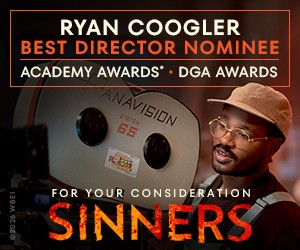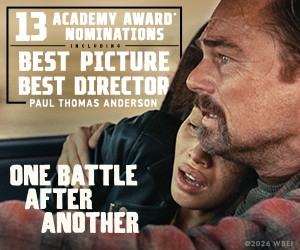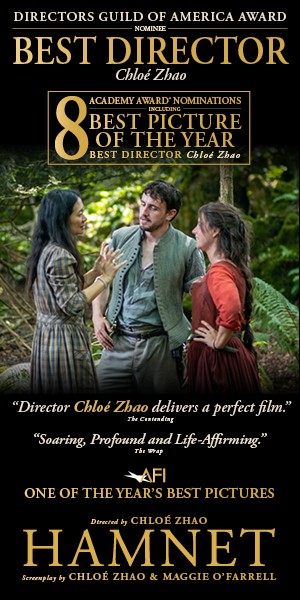The Robert B. Aldrich Award was established in 1984 to recognize extraordinary service to the Directors Guild of America and to its membership. The list of recipients of this honor reads like a who's who of individuals who have gone above and beyond in their service to their Guild. During the 61st Annual DGA Awards on January 31, 2009, DGA Second Vice President William M. Brady will be the twenty-fifth name added to that prestigious roster.
"I can think of few Guild members as superbly qualified and deserving of this Award," said DGA Secretary-Treasurer Gil Cates, a three-time DGA Negotiations Committee Chair including the most recent in 2008. "As both a Vice President of the DGA, and in his efforts as Network Negotiating Committee Chair, Bill has fought tirelessly for the rights of his fellow members. His leadership-by-example and ability to devise creative solutions to seemingly intractable problems is an inspiration to us all."
A DGA member since 1976, Brady was prompted to run for the National Board by President Gene Reynolds in the early 1990s and was later elected an Alternate Member. He served one term as Sixth Vice President (1999-2001) and two terms as Fourth Vice President (2001-2003; and 2005-2007) before he was elected the Guild's Second Vice President in 2007. In addition, he serves on the Eastern Directors Council; the Internal Complaints Committee; the DGA Honors Committee; and has been a trustee of the DGA Foundation since 2005. But it is for his efforts as Network Negotiating Committee Chair in 2002, 2005 and 2008 that he is best known to his fellow Guild Members. He recalls having been first enticed into Guild service by 1995 Aldrich Award recipient, Max Schindler, Sr.
"Max worked on The Today Show and we'd bump into each other on the remotes," said Brady. "He spoke to me about getting involved, but I don't think it came to anything much. Then in 1987 we had a watershed moment. There was a threat of a strike and I was called in by the management and they said, 'If there's a strike, you guys can't come to work.' That sat with me. So over the course of the next year or two I realized I didn't like being involved in an arena where I didn't have any direct impact upon my fate. So when I got called at the end of the '80s and asked 'would you like to get involved in the next negotiations' I agreed to do so. I figured it was better to be there trying to figure out where my career is going rather than just putting it in the hands of others."
In his initial involvement, Brady ended up becoming co-chair of the network negotiations committee alongside Schindler who served as chair. By doing so, he found himself in a tricky situation. "During the 1990 negotiations, ABC and NBC came back and said 'we achieved a lot in '87,' so they came in not demanding any rollbacks. Max had negotiated contracts for about a dozen years. Since we had such a short negotiation with ABC and NBC, I didn't get a chance to see Max work his magic. But CBS said 'we have a lot to gain' and had this incredible list of about 2,000 demands for concessions and rollbacks so we ended up having a long unilateral negotiation with CBS that I became the chair of. A lot of it had to do with perceptions of the network as to how things were changing, and the new technologies that were coming down the pike. Those negotiations went on for two years and we had to be very creative to deal with the technical changes within the industry."
For Brady, learning to use his creativity to deal with problems is something he has been doing for more than three decades. Born in New York, he grew up during a period where television was still an emerging medium and the Big Apple was an entertainment hub. "We'd go to movies quite often, but television had so much to offer so I gravitated towards that because it looked like something I'd like to do," Brady recalls.
While attending Queens College in New York, he majored in mass communications. "Queens was a pretty good school that was ahead of its time in that area. We had a full-color television studio and a full-time radio station so it provided real hands-on training." After graduating with a major in Mass Communications and minor in Theater and Economics, Brady worked a few jobs as a theatre technician, before landing a job in the mailroom at CBS. Even in those early days he exhibited abilities as a tough negotiator.
"Working in the mailroom wasn't that interesting and it didn't look like it was going anywhere. After six months I interviewed for a job as a desk assistant at WCBS Channel Two but they wouldn't take me so I thought, 'this is the end of the line if I can't get starter position here' and gave my notice to my mailroom boss. A week later I ran into the guy I interviewed with at Channel Two and he said, 'I'm glad I ran into you because we have a position as a Production Assistant.' So I started in the summer of 1976 as a PA and worked in that capacity for eight months until an Associate Director left and they made me an AD."
With his Guild card procured, Brady quickly moved up the ladder. "By the end of 1976 they had me doing inserts and small stuff. In March of 1977 they made me a staff AD and I was directing within that year doing their weekend shows. I went on from there to directing their 6:00 show, which was their flagship broadcast. I liked the electricity and it worked with my ability to work quickly. Being a news director is almost like working in a car wash. Everything is spinning around and you've got to get through without getting hit by something. But I was able to process a lot of information in a quick manner and deal with a real time schedule in a performance environment."
A CBS News director since 1981, over his years, Brady has helmed a myriad of shows including: Sunday Morning; The Saturday Early Show; The Early Show; Public Eye; 48 Hours; America Tonight; Street Stories; Eye to Eye; CBS Reports; 1989: A Year with Andy Rooney; and numerous other news broadcasts and specials including the reality special, Survivor: Countdown to Africa; the sports-oriented Sunday Morning Classics on ESPN; and Food TV's The Next FTV Star 2007 Finale.
He is grateful to the DGA mentors who helped him in his early period. "Channel Two had really top notch local directors. We had Ormand West who was a terrific guy, Eric Shapiro who's directing the CBS Evening News now, and David Dewey a venerable news director who came up as the station began. They all very open to giving you information and letting you move ahead. Those guys really helped me a lot." Now a veteran himself, Brady can return the favor by offering advice to younger directors. His best suggestion is that they, "be creative, be flexible. Examine what there is now as what there will be as opposed to what there was."
In spite of all his experience and service, he still found himself surprised when told he would be receiving the Aldrich Award.
"We have giants in this industry and I only deal with a specific sector of a medium. So when they announced my name at the table, I was floored. When you look at the names of previous recipients, I know it's an incredible honor. I just hope I'm as good as the award indicates."
Past Recipients of the Aldrich Award
- 2007 - Paris Barclay, Taylor Hackford
- 2004 - Jeremy Kagan
- 2003 - Jud Taylor
- 2002 - Edwin Sherin
- 2001 - Robert Butler, Tom Donovan
- 1999 - Arthur Hiller
- 1998 - Martha Coolidge
- 1997 - Delbert Mann
- 1996 - Daniel Petrie
- 1995 - Max A. Schindler
- 1994 - Burt Bluestein
- 1993 - Gene Reynolds, John Rich
- 1992 - Jack Shea
- 1991 - Larry Auerbach, Milt Felsen
- 1990 - George L. Schaefer
- 1989 - Gilbert Cates
- 1988 - Sheldon Lenoard
- 1986 - George Sidney
- 1985 - Elliot Silverstein
- 1984 - Robert E. Wise




